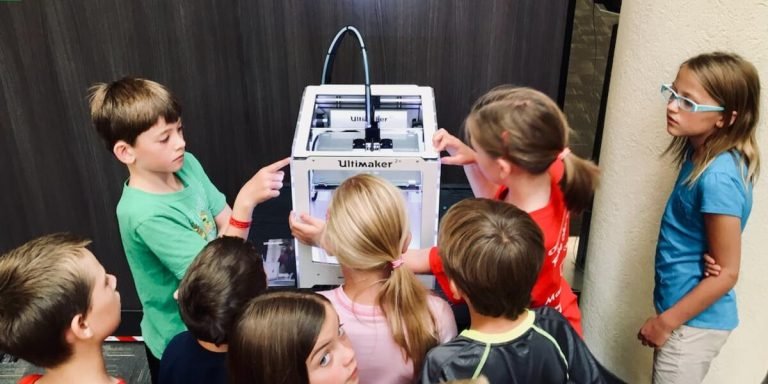Reading Skills: Nurturing a Lifelong Love for Learning in Young Minds
Developing “reading skills” in children is much more than merely teaching them to understand words and sentences. It’s about nurturing a deep-rooted love for learning that can last throughout their lives, an investment that brings fruitful rewards as they grow older. Reading abilities are foundational elements of elementary school education, shaping the focus towards critical thinking and comprehension from a young age.
However, creating this affinity for reading isn’t just about academic growth; it’s also tied closely with emotional intelligence and empathy development. When children connect with characters in books or explore varied scenarios through stories, they learn to appreciate diverse perspectives better – boosting social understanding along with cognitive abilities. This blog post delves into how educators can foster these ‘reading skills’ effectively among youngsters.
Did you know?
- Have a higher success rate in school
- Develop stronger linguistic skills
compared to those who aren’t read to.
Understanding the Foundations of Reading Skills in Elementary Education
In contemporary elementary education, a strong emphasis is placed on cultivating proficient reading skills. Building these critical literacy abilities begins with understanding the foundational elements that contribute to effective reading in young learners. It’s essential for parents and educators alike to comprehend this process as it significantly impacts a child’s academic journey onward from 2023.
Developing adept readers entails more than just teaching children how to identify letters and words; it involves fostering an innate love for books and comprehension of diverse texts. Emphasizing early exposure to literature can fuel curiosity about language, stimulate intellectual growth, and boost cognitive functions such as memory recall and concentration.
Moreover, honing skills like phonemic awareness — recognizing individual sounds within words — catalyzes children’s ability to decode written text fluently. Other vital components of this foundation include developing vocabulary knowledge through regular conversations or storytime sessions at home or school settings along with promoting visual tracking by following lines across pages while maintaining focus until reaching the end of sentences.
The Role of Phonics and Decoding in Early Literacy Development
Phonics and decoding play a pivotal role in early literacy development, especially when it comes to bolstering reading skills among children. The mechanisms behind these two concepts are simple yet profoundly effective.
At its core, phonics instruction involves teaching the relationships between letters and sounds. When kids learn that individual or combinations of letters make specific sounds, they’re acquiring crucial building blocks for reading.
Decoding, on the other hand, refers to a child’s ability to pronounce new words by sounding out (or decoding) them based on their understanding of letter-sound associations gained from phonics instructions. It’s like putting puzzle pieces together – each sound is one piece that forms part of an entire word when put across right.
The prominence given to phonics and decoding in 2023 mirrors our collective recognition as educators; we understand how foundational these techniques are for developing strong reading skills during elementary education years involved.
Taking up this methodical approach offers multiple benefits:
1. **Enhances Reading Accuracy**: By learning how different letters produce various sounds while combined differently can significantly improve accuracy levels with which youngsters read text.
2. **Strengthens Fluency**: As young learners become proficient at recognizing letter-sound correspondence quickly through diligently practiced phonics lessons fosters fluency – enabling smoother recitation without undue pausing or stumbling.
Building Comprehension: Techniques for Young Readers
So how can we enhance these crucial reading skills among young learners? Here are some proven techniques tailored for educators and parents alike.
1. **Interactive Reading**: This active approach involves asking questions during storytime or when your child reads aloud. It encourages engagement with texts while helping them understand complex situations better.
2. **Use Visual Aids**: Pictures, charts, diagrams all serve as powerful tools to explain difficult concepts in an easier language they’re likely more familiar with.
3. **Encouraging Predictions**: Before turning pages or beginning new chapters ask what might happen next based on information already gleaned – a simple yet effective technique boosting imaginative thinking alongside comprehension capabilities.
Incorporating Technology to Enhance Reading Skills at the Elementary Level
Incorporating technology into the learning process is a revolutionary and necessary step in enhancing reading skills at the elementary level. With children being born into an increasingly digitalized world, it becomes pertinent to adapt our teaching methods accordingly. This adaptation allows us to bridge any gaps between traditional educational frameworks and modern societal developments.
Educational technologies such as e-books, interactive games, online classes have brought about fresh ways to engage students and cultivate their interest in reading. E-books can offer narration features which could provide immediate pronunciation guidance for difficult words; this promotes independent learning among youngsters while also ensuring accurate language acquisition from a young age.
Moreover, educators are no longer confined within static pages of textbooks but can present lessons through dynamic multimedia platforms that stimulate various senses aiding cognitive development and retention of information learned better than ever before. Remembering 2023 isn’t just about adapting with times or incorporating fancy gadgets but truly understanding how these tools can help mould future leaders who grow up loving literature instead of fearing it.
Using technological resources doesn’t mean replacing books or personal instruction completely rather supplementing them intelligently allowing kids access broader range insights fuel curiosity inspire lifelong love towards reading because ultimately goal education not mere literacy critical thinking empowered voice responsible thoughtful citizenship .
Interactive E-Books and Apps: Engaging Young Minds
Interactive e-books and apps offer a dynamic alternative to traditional reading materials, effectively engaging young minds while enhancing their reading skills. In 2023, as the wave of digital transformation sweeps across all sectors including education, these tools act as vital aids in elementary school education.
E-books that are interactive combine text with multimedia elements such as audio narration or visual cues. They can be animated or static depending on the age group they cater to. Ebooks provide an immersive learning experience which not only keeps children entertained but also supports them in understanding complex narratives and concepts more easily.
Further reinforcing literacy advancement through technology is possible by using educational apps made specifically for improving reading skills among children at the elementary level. These applications may feature activities like word matching games, fill-in-the-blanks exercises or sentence arrangement tasks – all designed keeping younger students’ capabilities in mind.
In conclusion,the dawn of technological innovation has been making its mark felt heavily onto childhood education too – especially when it comes upscaling reading abilities amongst youngsters . By seamlessly integrating ebooks & relevant mobile applications into everyday curriculum ,we aid our future generations build strong foundations upon advanced literacy along with nurturing intrinsic love towards learning process itself .
Utilizing Audiobooks as a Tool for Improving Listening Comprehension
Audiobooks have emerged as a compelling tool in the modern age for improving listening comprehension, particularly among elementary school students. An integral part of harnessing technology to enhance reading skills, audiobooks deliver numerous benefits that can revolutionize how children approach learning.
Firstly, they offer an interactive and engaging way for young learners to comprehend complex language structures. As stories unfold audibly, children’s innate ability to decode words is stimulated significantly more than with traditional text-based material alone.
Moreover, audiobooks are accessible on various digital platforms such as tablets or smartphones – devices which most kids today are familiar with. This makes them convenient learning tools not only within classroom walls but also during travel times or at home.
In addition, audiobook narratives allow room for imagination too! The audio description fuels creative thinking while enhancing their vocabulary and pronunciation. They take listeners through tonal adjustments that portray emotion thus bringing lively nuances of storytelling into play!
Lastly yet importantly is the performance aspect associated with many professionally produced audiobooks; well-paced narration by proficient voice actors provide excellent models of fluent reading aloud – helping youngsters grasp intonation patterns crucial when mastering ‘reading skills’ .
Strategies for Parents Supporting Reading Skills at Home
As a parent, fostering reading skills at home is one of the most valuable investments you can make in your child’s educational journey. In this digital age of 2023 where screens are abundant and attention spans seem shorter, it may feel like a daunting task to nurture these vital skills effectively. However, with strategic approaches tailored for modern times, parents have the opportunity to significantly enhance their children’s ability to read fluently.
Step into your child’s learning space by incorporating engaging books that cater specifically to their interests or current grade level curriculum inquiries. Understanding what sparks joy for them will help develop an intrinsic motivation towards reading naturally. Make shared-reading more interactive – ask questions related to story plots or let them predict outcomes; such participative dialogues not just increase comprehension but also build critical thinking abilities.
Rely on technology instead of shying away from it! Many educational applications are available today offering high-quality e-books customized according to various elementary school grades facilitating access anytime-anywhere basis encouraging consistent practice.
Creating a Literate Environment: Encouraging Daily Reading Habits
Creating a literate environment within your home is an advantageous strategy for parents to support the development of reading skills in their youngsters. Encouraging daily reading habits can foster not only academic growth but also instill a lifelong love for literature.
To start, set up a welcoming and comfortable space designated specifically for reading sessions. This could be as simple as arranging cushions in an alluring corner or setting aside part of the child’s bedroom with adequate light sources. Having such dedicated spaces would subtly communicate that reading time is special and significant, thereby arousing interest towards it.
Next essential step involves ensuring easy access to age-appropriate books at any given moment. Regular visits to libraries and bookstores should become routine events incorporated into family activities – make them exciting adventures rather than insipid chores! Utilize online resources too; many e-books tailored especially for children are freely available these days which provide diverse material across different genres right at your fingertips!
Moreover, striving towards establishing regular ‘reading hours’ must be paramount among parenting strategies oriented around improving kids’ literacy levels. The idea here isn’t so much about forcing strict rituals but more along the lines of crafting cozy bonding moments brimming with stories full of enchantment – together unravel mysteries hidden inside those magical pages!
Furthermore, consider actively involving yourself during these sessions by adopting narration roles alternately or posing questions related to story plotlines helping hone comprehension abilities better whilst nurturing critical thinking facets simultaneously.
Fun Activities that Promote Vocabulary Growth and Retention
Developing a strong vocabulary isn’t merely about packing your child’s brain with words, it’s more about helping them understand and use these words correctly. This process can be quite engaging if you incorporate fun activities that make learning less of a task and more of an adventure. Here are some lively methods to help your little one foster their reading skills.
1. Word Games: Games like Scrabble or Boggle encourage children to think creatively while expanding their word knowledge simultaneously.
2. Flashcards Fun: Use flashcards bearing images and corresponding terms for everyday items around the house will enhance both visual recognition abilities along with vocab memory.
3. Rhyming Game: Spark creativity in young minds by asking them to come up with as many rhymes as they can for chosen keywords, promoting lateral thinking alongside vocabulary growth.
4. Story Telling Time: Letting kids create stories using specific new words helps improve sentence formation ability along improved retention through repeated usage.
5.Encourage Reading Habitually : Encouraging habitual reading enriches children’s language ability over time without feeling tedious due to passive engagement involved in story comprehension .
Conclusion
In essence, nurturing reading skills is the cornerstone in building a lifelong love for learning. It not only fosters intellectual curiosity but also paves the way to enlightenment and knowledge empowerment. Remember, every page turned opens new worlds of discovery; let’s ensure our children keep flipping those pages filled with adventures that feed their minds.
Our website offers an abundant resource on ways you can further contribute towards educating your young ones while savoring this delightful journey called parenthood. We urge you to explore more about parent and educator support which will provide comprehensive insights into various aspects of childhood education thereby assisting you in creating enriching experiences for them at every step along the way.







